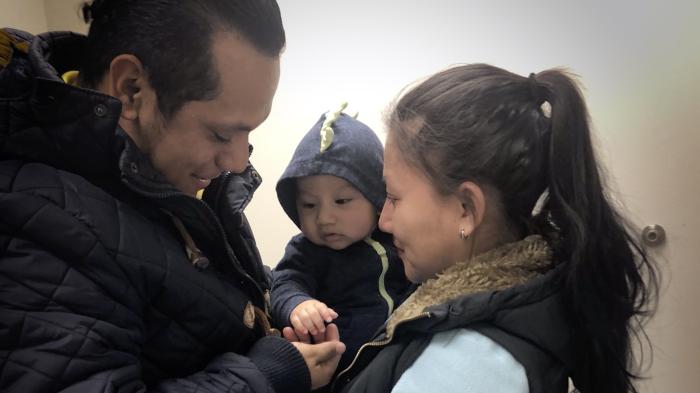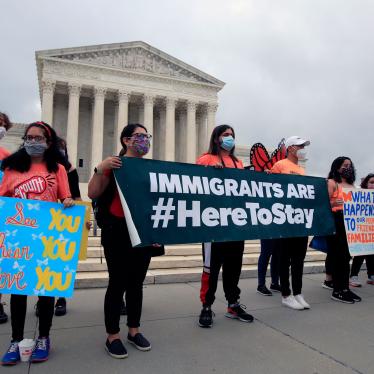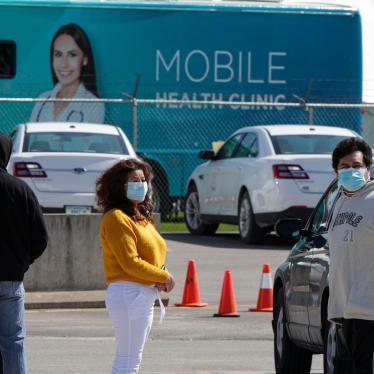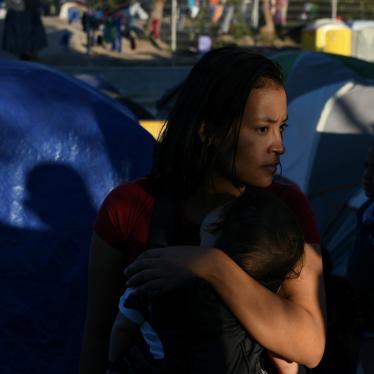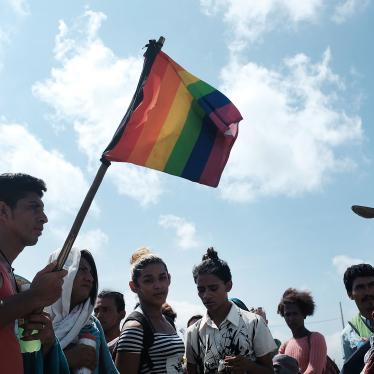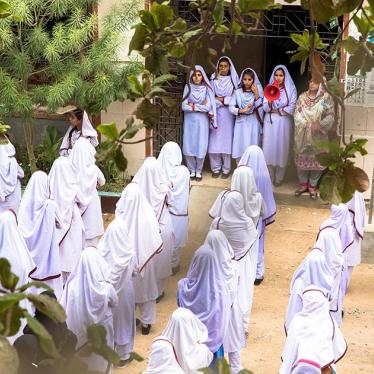(Iowa) – El gobierno del presidente de Estados Unidos Joe Biden debe actuar sin demora para asegurar un trato justo, digno y humano a los solicitantes de asilo y migrantes en la frontera, señalaron Human Rights Watch e Iowa City Catholic Worker en un video que se difundió hoy. En el video se muestra a una familia que sigue estando separada luego de casi dos años en el marco del programa de “Permanencia en México”, también conocido como Protocolos de Protección de Migrantes (PPM).
El gobierno del expresidente Donald Trump envió a más de 71.000 solicitantes de asilo de regreso a México en virtud de los PPM, adoptado en 2019. El presidente Biden puso fin a estos retornos el mes pasado. Algunos solicitantes de asilo que fueron enviados a México mientras esperan el trámite de sus casos activos en los tribunales inmigratorios podrían inscribirse para iniciar un proceso que les permita ingresar en EE. UU. a partir del 19 de febrero de 2021, según se indica en un anuncio del Departamento de Seguridad Nacional.
El nuevo video sigue las vivencias de una familia procedente de El Salvador —Alejandro, Juliza y su pequeño hijo Anderson— que fue separada en la frontera en 2019. Los funcionarios estadounidenses obligaron a Alejandro a esperar en México mientras Juliza, que entonces llevaba ocho meses de embarazo, siguió camino sola para pedir asilo en Estados Unidos, donde la recibió Iowa City Catholic Worker, una organización afiliada a Gamaliel. Al ser enviado de regreso a una de las ciudades más peligrosas de México, Alejandro fue secuestrado y sufrió abusos, una experiencia ya muy habitual para los migrantes y solicitantes de asilo en México.
“Las comunidades religiosas han llevado a cabo un trabajo crucial para apoyar a solicitantes de asilo y mantener juntas a las familias, pero esa tarea no debería depender solo de ellas”, expresó Victoria Strang, defensora de comunidades religiosas de Human Rights Watch. “Aunque el gobierno de Biden ha dado algunos pasos positivos, se requieren medidas contundentes para transformar la respuesta en la frontera de EE. UU. en una que trate con dignidad a todos los solicitantes de asilo”.
Ahora que se ha anunciado un proceso para que algunos solicitantes de asilo en México ingresen en Estados Unidos, Alejandro y Juliza tienen razones para albergar la esperanza de volver a estar juntos pronto. Sin embargo, el gobierno de Biden solo ha prometido permitir que vuelvan a ingresar cerca de un tercio de quienes antes estuvieron afectados por un PPM, y sigue adelante con las expulsiones sumarias de solicitantes de asilo sin garantías de debido proceso conforme a una orden de los Centros para el Control y la Prevención de Enfermedades (Centers for Disease Control and Prevention, CDC) que se adoptó a instancias de la Casa Blanca durante la presidencia de Trump, pese a las objeciones que plantearon en ese momento funcionarios de salud pública de carrera.
“Rezo para que a Alejandro y a todos los refugiados que ahora están atrapados en México se les permita entrar en Estados Unidos para plantear sus pedidos de asilo y reunirse con sus familias, e insto al Presidente a que los proteja”, expresó el padre Guillermo Trevino, Jr., un sacerdote católico de West Liberty, Iowa. “Iowa City Catholic Workers mantiene el compromiso de construir un mundo mejor donde se respete la dignidad que Dios concedió a todos los humanos, con independencia del color de su piel o su situación migratoria”.
El gobierno de Biden debe implementar un nuevo enfoque en la frontera que brinde a los solicitantes de asilo un trato justo, eficiente y respetuoso con derechos que apoyen la salud pública. Eso implica poner fin a las expulsiones y los retornos sumarios, priorizar un sistema de acogida humanitario, brindar recursos suficientes y establecer reformas estructurales para que los pedidos de asilo se tramiten en forma justa y eficiente, y actuar con rapidez para terminar con la impunidad en los organismos, apuntó Human Rights Watch.
